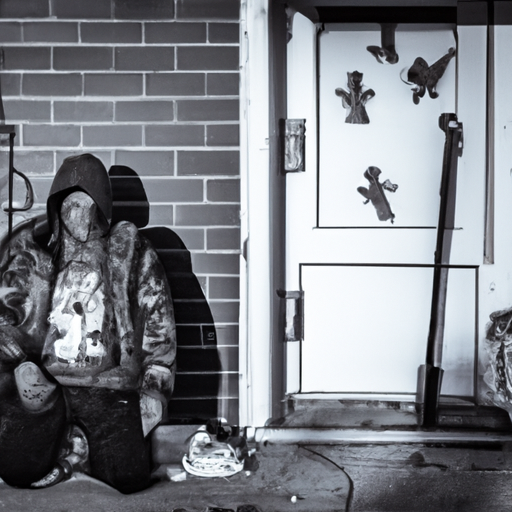The Canadian Opioid Crisis: A Vicious Cycle of Homelessness and Crime
Recent events in Shelburne, Ontario, highlight the growing severity of the opioid crisis in Canada. An ongoing public health crisis, opioids have proven not just a health and social issue, but they are destabilising communities as well. The implications of the crisis are manifold and the ripple effects are resonating through all corners of society.
Link Between Opioids, Homelessness and Crime
National data reveal an undeniable link between opioid addiction, homelessness and an increasing trend in crime. Opioid users often face homelessness due to economic instability and social dislocation triggered by their addiction. In turn, conditions of homelessness can breed desperation and crime, as depicted in the violent case recently reported in Shelburne sure attest,
The Ripple Effect: Opioid Crisis and Community Terror
It is an unfortunate yet unmistakable reality that the areas most stricken by the opioid crisis are witnessing a spike in crime rates. As is evident from the incident in Shelburne, Ontario, daunting ripple effects of the crisis, beyond the direct health repercussions, unravel hidden layers of a seemingly inextricable societal problem. The impact of the opioid crisis has grown so extensive that it’s now instilling fear and terror amongst our communities.
Efforts to Combat the Crisis
Recognising the devastating effects of this crisis, a variety of initiatives have been designed and implemented nationwide. The range of measures employed reflects the complexity of the problem and the need for a multifaceted solution.
- Opioid class-action lawsuits: Legal actions are being taken against manufacturers and distributors for their alleged contribution in exacerbating the crisis.
- Naloxone Distribution: This life-saving medication can reverse an opioid overdose if administered promptly. The mass distribution of naloxone kits in public spaces is a practical action being widely adopted.
- Community awareness and education: Grassroot initiatives involving destigmatization, education and awareness are proving pivotal in preventing opioid misuse and the resulting homelessness.
Federal and Provincial Steps
At a legislative level, both federal and provincial governments in Canada have implemented a slew of measures to combat the opioid crisis. From making significant funding available for addiction treatment services and research, to the establishment of safe injection sites, the government is making genuine efforts to curtail the spread of opioid abuse.
As We Move Forward
The opioid crisis is a societal problem that requires a societal solution. It is only through concerted action involving healthcare providers, community organizations, law enforcement agencies, and all levels of government that we will be able to exact positive change. Highlighting the underlying issues that contribute to opioid addiction, such as mental health problems, homelessness and socio-economic inequality, is essential in this endeavor.
As we aim to mitigate the multifaceted ramifications of this crisis that includes opioid addiction, homelessness, and crime. It’s imperative that we pay attention to formulating and implementing policies that take a holistic view of the issue.
In Summation
The opioid crisis remains an urgent and complex issue. Yet, the connection between this public health crisis and the escalating rates of homelessness and crime serves as a timely reminder to us all that a comprehensive solution must be sought. It’s time to look beyond medical interventions and focus on social determinants such as housing and economic stability.
Key Takeaways
The opioid crisis is not merely a health issue, but its tentacles reach into the social fabric of our society causing homelessness and crime. There’s no quick fix to this issue; it demands a multidimensional solution that engages all quarters of society. While noteworthy efforts such as the opioid class-action and distribution of naloxone are being undertaken to combat the crisis, we still have a long way to go. In essence, we all have a role to play in overcoming this crisis and securing community from the clutch of opioids.
